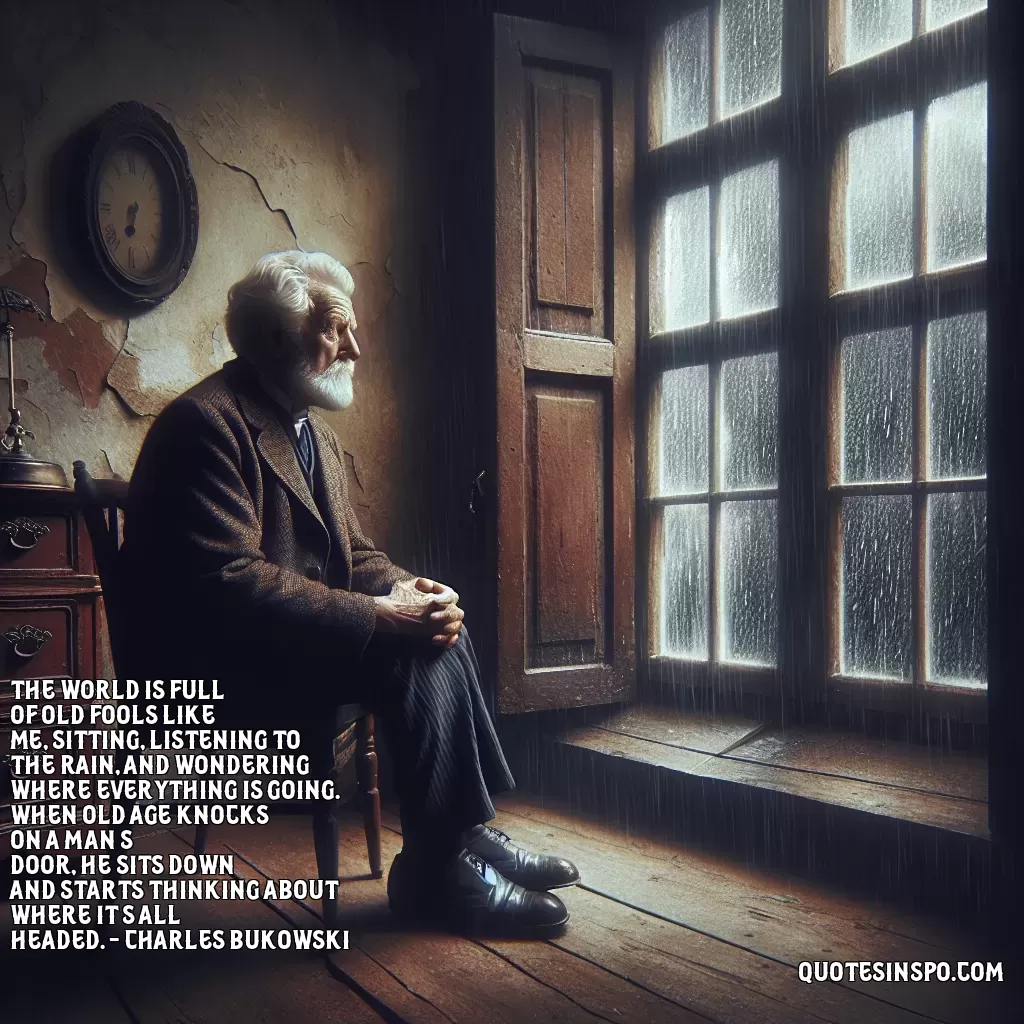
The world is full of old fools like me, sitting, listening to the rain, and wondering where everything is going. When old age knocks on a man’s door, he sits down and starts thinking about where it’s all headed. - Charles Bukowski

The world is full of old fools like me, sitting, listening to the rain, and wondering where everything is going. When old age knocks on a man’s door, he sits down and starts thinking about where it’s all headed. - Charles Bukowski
This quote by Charles Bukowski delves into the introspective nature of aging and the universal human tendency to reflect on life’s journey as one grows older. The imagery of “old fools...sitting, listening to the rain” evokes a sense of melancholy yet peaceful contemplation. Rain, often symbolizing cleansing and renewal, paradoxically occurs during a time of pondering the future and existential considerations. The mention of “old fools” could imply both a sense of humility and an acceptance of one's limitations and past mistakes, suggesting a recognition of the inevitable changes life brings. Bukowski suggests that with age comes a distinct form of wisdom, one that arises not necessarily from a culmination of achievements or accolades, but rather from an accumulation of experiences—experiences that prompt reflection on where one's life has been and where it might be headed. There’s an underlying acknowledgment of life's transience; as people age, they are more inclined to consider their legacy and the impact they leave behind. “The world is full of old fools” signifies that this introspective journey is universal. It implies a shared human experience, a collective pondering of one’s purpose and destiny. The author illustrates that aging leads to a deeper consideration of life’s trajectory, as one begins to contemplate the stories they will leave behind after the inevitable denouement of their life's tale. Ultimately, Bukowski captures the poignant reality of aging as both a physical and spiritual journey towards understanding oneself and one’s place in the ever-changing narrative of life.
Quote By: Charles Bukowski
Charles Bukowski was a German-American poet, novelist, and short story writer known for his raw, unflinching depictions of life on the fringes of society. Born on August 16, 1920, in Andernach, Germany, and later moving to Los Angeles, Bukowski's work often drew from his experiences with poverty, alcoholism, and relationships, earning him a cult following and critical acclaim. His most notable works include "Post Office," "Factotum," and "Love is a Dog From Hell," which reflect his gritty, unsentimental style and unique voice in American literature.
Bio added on: 2025-02-19 14:00:18